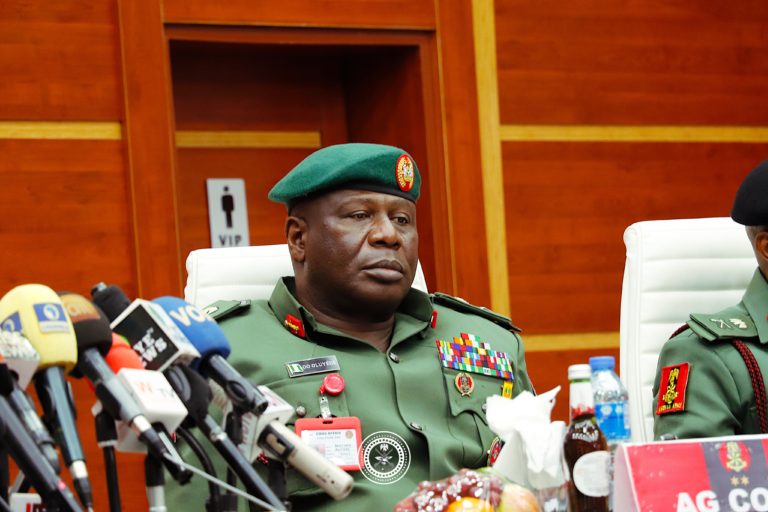
BENUE INSECURITY: CHIEF OF ARMY STAFF RELOCATES WITH PSOs
By: Jen Nomamiukor
Lieutenant General Olufemi Oluyede, the Chief of Army Staff, has moved to Makurdi, the capital of Benue State, in response to the ongoing violence against innocent villagers by herders and militia groups.
Lt Gen Oluyede left Abuja on Tuesday morning with his Principal Staff Officers and key Army Headquarters officials to assess the situation in Benue State. He has ordered the deployment of additional troops to combat the militia and armed groups terrorizing the region. While in Benue, the Chief of Army Staff (COAS) intends to hold strategic meetings with operational and unit commanders to discuss the ongoing operations aimed at ending the violence. The COAS will also visit troops’ locations to interact with them and uplift their morale, as well as visit villages that have experienced attacks to assure residents of their safety and the Nigerian Army’s commitment to protecting law-abiding citizens. Expressing dissatisfaction with the recent surge in killings, the COAS may implement strategic changes, including the reassignment of some commanders within the operational units.
READ ALSO:
KILLINGS: TAKE IT BACK MOVEMENT ANNOUNCES NATIONAL PROTEST ON JUNE 12
General Oluyede will personally lead troops in an operation at the battlefront during his visit to the state, where he is anticipated to remain for several days before returning to Abuja.
The situation in Benue has been characterized by many as ethnic cleansing, with gunmen believed to be herdsmen carrying out violent attacks on villagers. These assaults involve the use of advanced firearms and machetes, contributing to a growing atmosphere of fear and instability in the region.
Last weekend, gunmen attacked several communities in the Gwer West and Apa Local Government Areas of Benue State, resulting in the deaths of 43 individuals. These assaults occurred just a week after herdsmen militia shot Rev. Fr Solomon Atongo and attacked four communities, including the village of Bishop Wilfred Anagbe, leading to the fatalities of 42 persons, one of whom was a mobile police officer.
